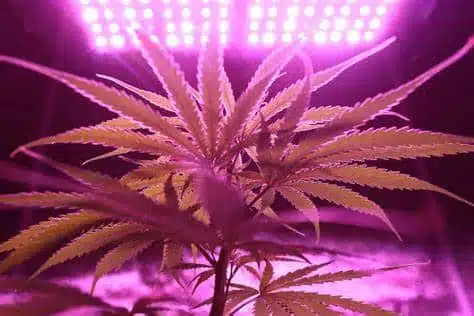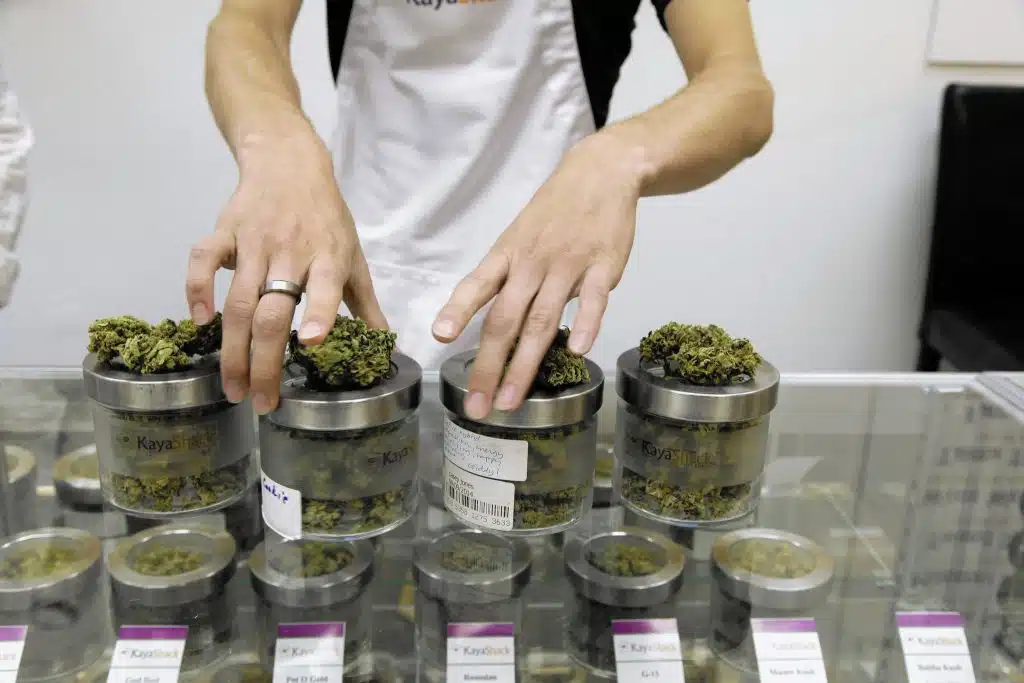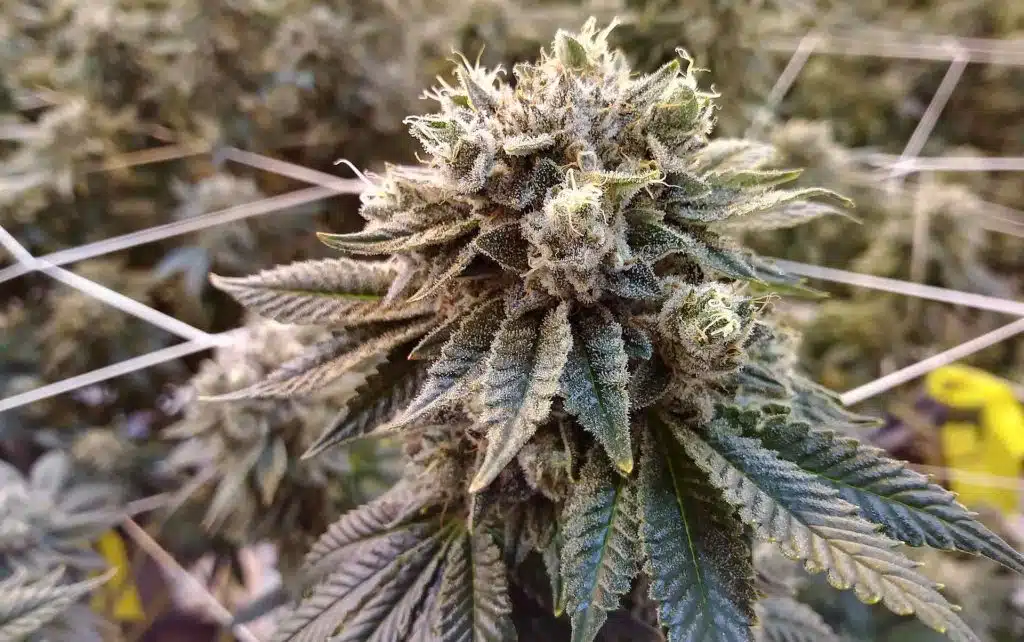Using Cannabis To Heal Trauma
Trauma can have a profound impact on a person’s life, affecting them in a variety of ways. Trauma can be defined as any event or experience that is deeply distressing or disturbing, and that overwhelms a person’s ability to cope. This can include experiences such as physical or sexual abuse, natural disasters, accidents, or witnessing violence.
One of the most common ways that trauma affects someone is through the development of post-traumatic stress disorder (PTSD). PTSD is a mental health condition that can develop after someone experiences or witnesses a traumatic event. Symptoms of PTSD can include flashbacks, nightmares, avoidance of triggers, and hyperarousal. These symptoms can be debilitating and can interfere with a person’s ability to function in their daily life.
Trauma can also affect a person’s physical health. For example, trauma survivors may experience chronic pain, headaches, or gastrointestinal problems. Additionally, trauma can have a negative impact on a person’s immune system, making them more susceptible to illness and disease.
If you’re someone who has experienced trauma, you know how difficult it can be to find relief. Traditional methods of therapy and medication may not always work, leaving you feeling hopeless and stuck. However, there is a growing body of research that suggests cannabis may be a powerful tool in healing trauma. Here are ways cannabis can help you heal trauma:
The Benefits of Using Weed for Trauma
There are several potential benefits to using weed to manage trauma symptoms. For one, weed has been shown to have a calming effect on the body and mind, which can be helpful for those experiencing anxiety or panic attacks related to trauma. Additionally, weed can help with sleep, which is often disrupted in trauma survivors. Finally, weed can help with pain management, which can be especially helpful for those who have experienced physical trauma.
The Drawbacks of Using Weed for Trauma
While there are potential benefits to using weed to heal trauma, there are also some drawbacks to consider. For one, weed can be addictive, and those with a history of addiction may be at risk for developing a dependence on weed. Additionally, weed can have negative effects on memory and cognitive function, which can be problematic for those who need to be alert and focused for work or other activities. Finally, weed can have negative effects on lung health, especially if smoked.
Tips for Safe and Effective Use
If you’re considering using weed to manage trauma symptoms, there are several tips to keep in mind to ensure safe and effective use. First, it’s important to start with a low dose and gradually increase as needed. This can help you avoid any negative side effects and ensure that you’re getting the right amount for your needs. Additionally, it’s important to choose the right strain of weed for your needs. Some strains are more calming, while others are more energizing, so it’s important to do your research and choose the right one for you. It’s important to be mindful of how you’re using weed. Smoking can be harmful to lung health, so consider using edibles or other methods of consumption instead. Finally, trauma can have a profound impact on a person’s relationships. Trauma survivors may struggle to trust others, or may have difficulty forming close relationships. They may also struggle with intimacy or have difficulty expressing their emotions.
1. Reducing Anxiety and Depression
Anxiety and depression are common symptoms of trauma, and they can be incredibly debilitating. Cannabis has been shown to reduce symptoms of both anxiety and depression, making it a promising treatment option for those struggling with trauma-related mental health issues.
2. Promoting Relaxation and Sleep
Trauma can make it difficult to relax and get a good night’s sleep. Cannabis can help promote relaxation and improve sleep quality, which can be incredibly beneficial for those struggling with trauma-related insomnia.
3. Enhancing Mood and Well-Being
Cannabis has been shown to enhance mood and overall well-being, which can be incredibly helpful for those struggling with trauma-related depression and anxiety.
4. Reducing Pain and Inflammation
Trauma can cause physical pain and inflammation in the body. Cannabis has been shown to be an effective pain reliever and anti-inflammatory, making it a promising treatment option for those struggling with trauma-related physical symptoms.
5. Improving Memory and Cognitive Function
Trauma can impact memory and cognitive function, making it difficult to concentrate and remember important details. Cannabis has been shown to improve memory and cognitive function, which can be incredibly helpful for those struggling with trauma-related brain fog.
6. Enhancing Creativity and Self-Expression
Trauma can make it difficult to express yourself creatively and authentically. Cannabis has been shown to enhance creativity and self-expression, making it a promising tool for those struggling with trauma-related creative blocks.
7. Promoting Mindfulness and Self-Awareness To Heal Trauma
Trauma can make it difficult to stay present and mindful. Cannabis has been shown to promote mindfulness and self-awareness, making it a helpful tool for those struggling with trauma-related dissociation.
8. Reducing Hyperarousal and Hypervigilance To Heal Trauma
Trauma can cause hyperarousal and hypervigilance, making it difficult to relax and feel safe. Cannabis has been shown to reduce hyperarousal and hypervigilance, making it a promising treatment option for those struggling with trauma-related PTSD.
9. Enhancing Social Connection and Communication
Trauma can make it difficult to connect with others and communicate effectively. Cannabis has been shown to enhance social connection and communication, making it a helpful tool for those struggling with trauma-related social anxiety.
10. Promoting Spiritual Connection and Growth
Trauma can impact your sense of spirituality and connection to something greater than yourself. Cannabis has been shown to promote spiritual connection and growth, making it a promising tool for those struggling with trauma-related existential questions.
In conclusion, cannabis can be a powerful tool to heal trauma. Whether you’re struggling with mental health issues, physical symptoms, or creative blocks, cannabis may be able to help. If you’re interested in exploring cannabis as a treatment option, be sure to consult with a qualified healthcare professional and consider checking out West Coast Releaf Online Dispensary for high-quality cannabis products.
Conclusion
If you are interested in buying weed online and THC products, check out West Coast Releaf online weed dispensary and shop for your weed online and cannabis products at westcoastreleaf.co!













